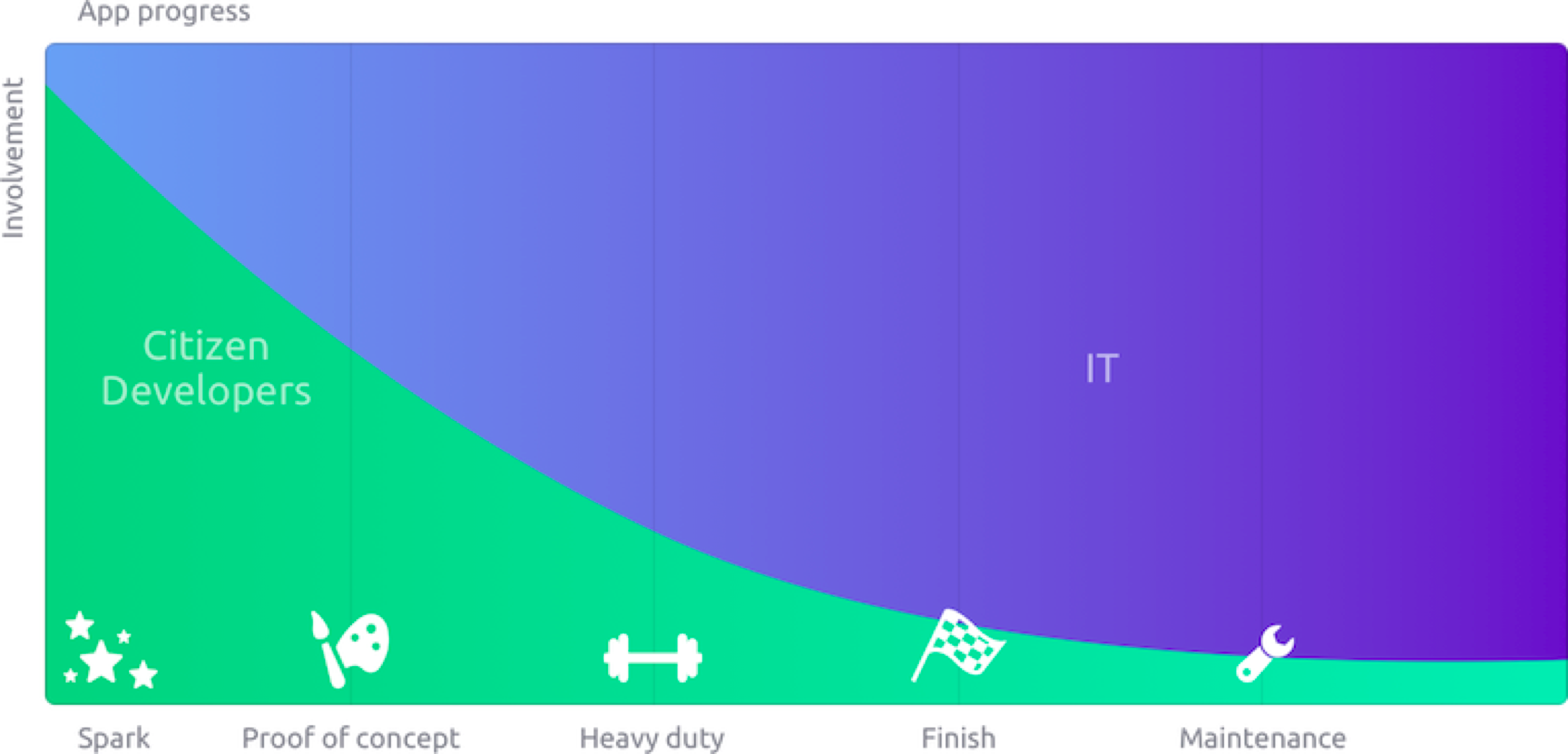
We’ve got a whole herd of developers roaming through our office, fighting for space at the coffee machines and using the last of the mayo in the lunch line. This post is for them, and for those like them: Fellow programmers who are proudly dedicated to their craft, and who might be wary of a movement whose very battle cry is that the future of app development is coding-free.
Programmers are an unlikely yet integral piece of the no-code puzzle. Contrary to expectations, no-code isn’t trying to replace programmers at all. Read on to learn why not.
[TL;DR - It’s because no-code takes care of IT department backlogs so that programmers can tackle the bigger, hairier, and more complicated projects.]

Why we no-code
First reason: World domination. Follow-up reasons: To solve some of today’s big problems in software development: A shortage of skilled developers, such as yourself. The pressure to develop faster and shorten time to market. Reducing IT’s backlog of the small projects that never go into production. The continuous increase of massive amounts of data that we need to structure now and in the future. The need for more collaboration between business needs and IT.
No-code development addresses these issues by providing a platform with high ease of use and a low learning curve.
No one is saying that coding is dead or that programmers are going to be out of a job--just that the demand for software is explosive, and we need more types of solutions to be available.
Citizen developers: Friends? Enemies? Frenemies?
Programmers are a hot commodity these days, but there are far too few of you guys to go around. We need more hands on deck to support the ever-increasing needs for software. Citizen developers are meant to help fill this gap, acting as a mediator between your work and business demands. In this way, business users can lessen the burden on IT department backlogs (reporting apps, CRMs, etc.) so that programmers can tackle the bigger, hairier, and more complicated projects.
(Conclusion: Citizen developers are your friends.)
How programmers benefit from no-code
You might actually find that there are aspects of working with no-code that you like, or that help you do your job better.
-
Better client collaboration. No-code platforms are so accessible that developers can actually co-develop with clients. Clients can directly give feedback because they’re better able to understand the mechanisms behind their project. You’ll also avoid the constant back and forth of tangled chains of communication. So no-code is actually a nifty middle ground communication tool that bridges the gap between you and your clients (who are but mere mortals).
-
Real-time collaboration between developers. When a no-code platform lets multiple developers work on the same application simultaneously, there’s no more confusion about interpreting someone else’s code.
-
Citizen developers can get the party started. Another way you can work with citizen developers to make your life easier is to have them use a no-code platform to get projects started, and then you can take over when they run into the boundary of their knowledge. Basically, again saving yourself time and energy on distracting tasks or repetitive project start-ups.

Not better, just different
No-code provides a different tool to both citizen developers and programmers alike, either speeding your work or making easy tasks easier, or giving citizen developers a gateway into the development world. So whether you sometimes use a no-code platform yourself or work with citizen developers who do, there’s a place for it.
But probably I can shout all of this as loud as I want and there will still be skepticism from the developers out there. And I wouldn’t expect anything less from such a passionate bunch ;) So give me a shout back on LinkedIn. What’s your biggest hang-up with no-code? What would you need to see to change your mind?
I’ll look forward to hearing from you.

